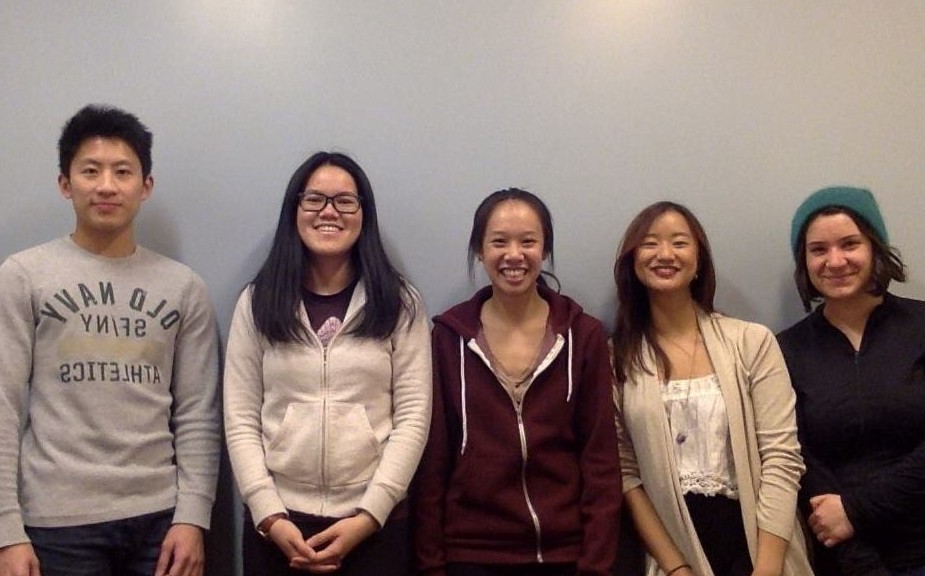
“Up to one third of all food is spoiled or squandered before it is consumed by people. It is an excess in an age where almost a billion people go hungry, and represents a waste of the labour, water, energy, land and other inputs that went into producing that food.”
UN FAO, 2016
Hello, there! We are team no.4 in the LFS 350 2016 winter/spring course, and our project is one we have designed ourselves, with the much-appreciated help of our mentors, Adrienne and Will. Our project seeks to tackle the issue of food waste on a local scale, making an impact within our campus and nearby communities. This endeavour, added to the similar projects worldwide, can help bring attention and solutions to the issue of food security.
Below are the team members and their respective goals for this course:
- Evonne, a student in Food, Nutrition and Health and recently having applied to Global Resource Systems to specialize in Global
 Nutrition and Health. She is passionate about food nutrition and its importance to food security. Her future career goals will involve a global perspective investigating how various food systems impact different societies and how to address these food system issues in a sustainable manner. She hopes to gain from this course the ability to collaborate with multiple disciplines and appreciate the challenges working and researching with others along with gaining more knowledge and understanding of our current food system. She can apply this to her future career where she would have gained teamwork skills applicable in an international setting, addressing food system issues through research and field work.
Nutrition and Health. She is passionate about food nutrition and its importance to food security. Her future career goals will involve a global perspective investigating how various food systems impact different societies and how to address these food system issues in a sustainable manner. She hopes to gain from this course the ability to collaborate with multiple disciplines and appreciate the challenges working and researching with others along with gaining more knowledge and understanding of our current food system. She can apply this to her future career where she would have gained teamwork skills applicable in an international setting, addressing food system issues through research and field work.
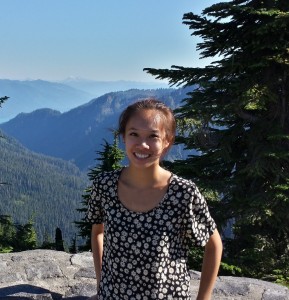 Heather, a 3rd-yr student majoring in Nutritional Sciences. She enjoys learning about ways to deal with food security issues surrounding different demographics around the community. Since the midwifery program at UBC might be a degree she considers after FNH, she is planning to use her background in nutrition and food accessibility to supplement her studies on prenatal women, on both the local and international scale. Through this course, she hopes to have an increased understanding of how to incorporate different perspectives and needs when developing future community projects. As well, she hopes that the skills she gains through LFS 350 will complement her studies by having a better approach for community research.
Heather, a 3rd-yr student majoring in Nutritional Sciences. She enjoys learning about ways to deal with food security issues surrounding different demographics around the community. Since the midwifery program at UBC might be a degree she considers after FNH, she is planning to use her background in nutrition and food accessibility to supplement her studies on prenatal women, on both the local and international scale. Through this course, she hopes to have an increased understanding of how to incorporate different perspectives and needs when developing future community projects. As well, she hopes that the skills she gains through LFS 350 will complement her studies by having a better approach for community research.
- Belda, a 3rd year student in the Food Science major. She loves food and science, and wishes to use her
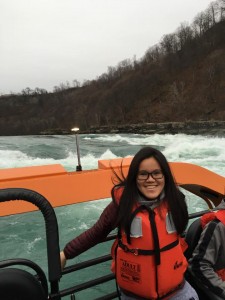 knowledge in these areas to help as many people as she can. Her current personal goal, which she hopes to can pursue professionally, is to figure out how knowledge of food science can be utilized towards improving global food security, solving wide nutritional problems (i.e. malnutrition in children, lack of food security due to poverty) and to create more sustainable food production methods. Through this course, she hopes to improve her project management skills, as well as deepen her knowledge in asset-based community development. Belda believes her experience from LFS350 will help her plan better projects in future careers.
knowledge in these areas to help as many people as she can. Her current personal goal, which she hopes to can pursue professionally, is to figure out how knowledge of food science can be utilized towards improving global food security, solving wide nutritional problems (i.e. malnutrition in children, lack of food security due to poverty) and to create more sustainable food production methods. Through this course, she hopes to improve her project management skills, as well as deepen her knowledge in asset-based community development. Belda believes her experience from LFS350 will help her plan better projects in future careers.
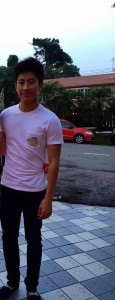
- Jing, a 4th year student in the Food Nutrition major. He is interested in topics on supplementation. His goal is to improve nutrition and health outcomes of the populations through availability of foods that would increase intake of vegetables and fruits, decrease caloric intake and increase micronutrient intake. He hopes to help shift consumer behaviour towards an increased consumption of a diversified diet of vegetables and fruits, considering the current issues of obesity and health related diseases. Through the LFS 350 course he hopes to integrate personal, group, and community values by addressing the issue of food security on a community scale.
- Ana, a 3rd-yr student in Global Resource Systems. Her specialization is sustainable agriculture
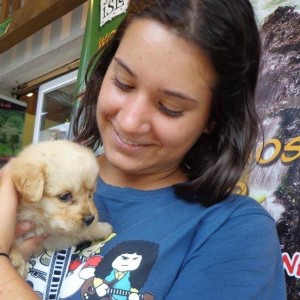 (economic and sociological perspectives, in addition to scientific), in Latin America. She is interested in food production methods that promote self-sustenance and a successful means of living for small-scale farmers in developing nations, and in regions where food security is an issue. She is also particularly interested in urban agriculture, and projects relating to growing food in small, limited spaces. She hopes this course will help her understand how to create and integrate small-scale solutions which can help the big picture.
(economic and sociological perspectives, in addition to scientific), in Latin America. She is interested in food production methods that promote self-sustenance and a successful means of living for small-scale farmers in developing nations, and in regions where food security is an issue. She is also particularly interested in urban agriculture, and projects relating to growing food in small, limited spaces. She hopes this course will help her understand how to create and integrate small-scale solutions which can help the big picture.
Collective goals and interests behind taking LFS 350 this winter/spring:
- Develop skills of professional collaboration with different community members and stakeholders, within different settings and situations.
- Gain skills in analyzing, assessing, and implementing initiatives that positively impact the community and meet their needs, while restraining from assuming a “superior” and pedantic position over these community members.
- Gain more appreciation and understanding of the challenges and complexities in addressing these issues in terms of collaborating, communicating, and executing these initiatives.
- Further develop time management skills.
Our project and its goals align with the Vancouver Food Strategy, which is the City’s new initiative to meet their social, environmental, economic, and health goals. Through years of gathering, sharing and initiatives, the drive to focus on food security and sustainability on a community scale is stronger than ever. From urban farming to food accessibility to composting, grassroots and community-initiated projects have created a strong base and network on which food security can be addressed. More information can be found here. Within the 5 priority action areas of the Vancouver Food Strategy, our project seeks to tackle the issue of food waste. Predominantly, we wish to gather, analyze and present data on the level of food waste occurring at several small grocery stores and markets, as well as create resources from which community members can lessen their level of food waste. Furthermore, our vision for this project is to bring awareness to students regarding the amount of fresh produce thrown away, even in a household. By providing ideas and options on how to use these produce items, students will be encouraged to use fruits and vegetables they already have in their fridge and pantry, thus decreasing food waste at home.
A brief description of our methodology:
- Connect with grocery stores and markets management and gather data on how they dispose of, or, deal with unsold produce (Sprouts, grocery store at the Nest, Kin’s Market, several other grocery stores within a 15km-radius of the UBC campus).
- Create healthy, delicious recipes that utilize “ugly”, unsold produce, keeping costs as low as possible. Set up a booth on campus, offering our culinary creations to students, and gathering feedback on the palatability of these recipes. Surprise students with the fact that the smoothies are made from “unappealing” produce, are inexpensive to make, and yet are very nutritious.
- Set up a website or another form of medium that would be easily accessible for community members and campus students, providing these recipes, information on food waste, as well as a map indicating the grocery stores and markets which sell discounted produce.
First impressions of our project so far:
We had difficulty coming up with a project which we could realistically envision completing in the short time-frame we are given (about 3 months). However, by starting big (“let’s do something about food waste”) and narrowing it down (“focus on awareness and the student body”), and narrowing it down some more (“help them find grocery stores which sell discounted produce and even show them how yummy and inexpensive meals can be”), we were able to create a feasible and exciting project to take on.
We are hoping this project will have a lasting impact on the student and local community. By bringing awareness to the students and having resources available, we will inspire lifestyle changes that can encourage students understand the importance of food waste at both the household and commercial levels, help them turn “old” produce into nutritious meals, and support local businesses. Ideally, this project could be the first step of an initiative that would be continued by following groups interested in the issue of food waste in subsequent LFS 350 classes.
Two approaches we are adamant on following, which will make our project more difficult to carry through, but at the same time will make it less superficial and more successful in the long-term are: 1) listening to the community and 2) using an Asset-Based Community Development (ABCD) approach.
It is important that we are open and understanding of what students want, as well as what these small businesses need, and why they are dealing with food waste the way they currently are. How much time is a student willing to put in to look for unsold produce? What if they are looking for specific ingredients? What if they simply don’t have time to clean, cut up and blend or cook food? Is it time-efficient and economically viable for businesses to categorize old produce, price it and use retail space to sell it? Are there any health regulations keeping them from selling old produce? Does the display of unpalatable produce affect the shop’s/market’s image? We are trying to approach this project by gathering this much-needed information, rather than straight-up offering a “solution”, a perspective speaker Ernesto Sirolli strongly emphasizes. What better way to successfully learn than through listening?
Also, by focusing on what is already working for students and for grocery stores and markets, we can create ideas that would further add to the success of the businesses or the lifestyle of the student(the premise of ABCD). If the grocery store more of a farmers’ market-style retailer, then displaying reduced produce would further enhance the atmosphere of farm-grown produce stands. If students like simplicity and quick recipes, then we can focus on minimal ingredients and quick recipes . And so on. The solutions differ, and they are unique to each situation.
References:
City of Vancouver. (June 22, 2015). Vancouver Food Strategy: Building just and sustainable food systems. City of Vancouver: People and Programs. Retrieved from http://vancouver.ca/people-programs/vancouvers-food-strategy.aspx
Collins, Carla. (October 16, 2014). ABCD Animation. Retrieved from https://www.youtube.com/watch?v=_muFMCLebZ4
FAO. (2016) Food Loss and Food Waste. FAO. Retrieved from http://www.fao.org/food-loss-and-food-waste/en/
Sirolli, Ernesto. (November 26, 2012). Want to help someone? Shut up and listen! Ted Talks. Retrieved from https://www.youtube.com/watch?v=chXsLtHqfdM